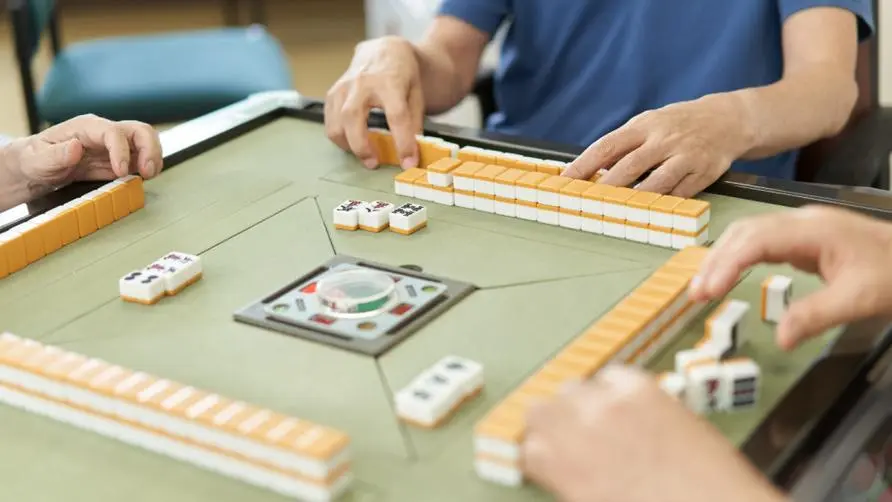Can you see "the sinister nature of people's hearts" while playing cards during the Chinese New Year? Psychologists advise: If "these 7 types of people" appear at the poker table, it is recommended to avoid interacting with them!

Have you ever thought that a seemingly ordinary card game at a lively New Year party can actually reveal people’s hidden nature? We often hear people being described as having a “gambler’s mentality.” So, what is a “gambler’s mentality”? This is an attitude that always relies on luck rather than actual effort. Those who are addicted to gambling usually tend to speculate and believe that “luck” is more important than “strength”.
For them, it seems that the only way to get rich overnight is to rely on the help of the God of Wealth. At the card table, people with this mentality unabashedly display the most greedy, stingy, irritable, and dishonest aspects of human nature. Therefore, psychologist Lin believes that although it is just a small card table, it can profoundly reveal the weaknesses of human nature and is an excellent place to observe the dark side of human nature.
1. Uncertain about raising the sign
Almost all my friends who are good at playing cards have complained to me that when playing cards they are most afraid of encountering people who are hesitant to hold up their cards. They have to think twice before playing a card until their fellow players repeatedly urge them to play. The reason why they are so careful is simply that they are afraid of losing money. A friend who hesitated to raise his cards at the card table once was very enthusiastic about treating a group of our friends to dinner. Unexpectedly, after the treat was over, everyone found out that he had also invited a sponsor to pay the bill, so that all the people he treated could People feel very embarrassed, as if they are taking advantage of others.
2. Emotional ups and downs
Watching the poker table, you can always see people whose emotions about winning and losing are palpable. When they win, they cry with joy, sing or laugh loudly, making others unhappy; when they lose, they become angry and dissatisfied with everything around them. From the noise of children to the loudness of music, and even the unsatisfactory weather, they all vent their anger. Object. Such people are often self-centered and don’t care about the feelings of others.
You need to be mentally prepared to interact with them, because in their world, the existence of others seems insignificant. They demand total cooperation and no room for dissent, which is not surprising since they simply cannot empathize with other people’s emotions.
3. Lose money and default on debts
At the gambling table, in addition to those with big mood swings, there is also a more selfish type of people: those who “take money when they win and default on the money when they lose.” Don’t mistakenly think that this is done by people with low education or lack of money. In fact, it has something to do with personal character.
Such people are defaulters in gambling and may be irresponsible in love. I once heard a friend with a reputation as a “deadbeat” proudly say that he followed a three-no policy in love: no rejection, no responsibility, and no payment. He believes that anyone who falls in love with him “owed him something in his previous life” and should repay him unconditionally. Surprisingly, there are actually many women who believe this and are willing to do anything for him.
4. What a great success
In the card playing circle, those who are keen on becoming big names often have a personality of “happiness for success”. For them, there is no sense of achievement in just playing small cards. What they pursue is the shock and satisfaction of winning big. In the poker game, they insist on either not winning. To win, they must win as much as possible, and they disdain the situation of small wins with small cards. This mentality is also reflected in their daily life and work: they pursue great achievements and are not satisfied with small gains. But this kind of thinking often leads to accomplishing nothing in the end, because success usually starts from small things and accumulates from small profits. On the contrary, those who like Hu Xiaopai have completely different personalities. They pay more attention to reality, pursue stability and security, and do not care about winning more or less, as long as they can win.
5. Keep calm
At the poker table, those silent players are often the most feared opponents. Emotions are hard to read on their faces, making it difficult for opponents to guess their cards. When such players encounter bad luck, they will not blindly pursue their losses, but will look for opportunities to escape from the table to avoid further losses. For example, they would take the opportunity to use the restroom, call their family, and then ask to leave on family grounds.
To avoid upsetting other poker players, they often use the excuse that they have to go home. On the other hand, when such players feel that they have won enough, they will cleverly arrange for their cell phones to ring and politely leave, citing a family emergency, so as not to be seen as winners at the table.
6. Want to make a comeback
As we all know, playing cards is a money game with both losses and wins. However, some people can only win money but not lose money. When they lose money, they rush to make up their money, and the more anxious they are, the more they lose, forming a terrible vicious circle. . People who want to recoup their losses as soon as they lose money are basically a little impulsive. They not only cannot afford to lose at the poker table, but also often refuse to admit defeat when doing other things.
It was obviously something they shouldn’t do, but once they took the gamble, they had to fight to the end. As a result, they got deeper and deeper into the situation. Not only did they lose all their chips, they ended up with a lot of debt, and even their families were in trouble due to high gambling debts.
7. Gambling is strong
To judge whether a person’s gambling temperament is strong, you only need to do a simple test: call him to join the gambling game. People with strong gambling habits will immediately lose control when they hear about gambling. Even if you want to quit, they will insist on continuing. Such people have no resistance to gambling, and any activity with a chance of winning or losing, such as video games, pool or baseball, can become their bet.
I have a friend who is a strong gambler. He often changes jobs. For a period of time, he was unemployed at home, so he would invite friends to play cards at home every day. When his family urged him to find a job, he confidently said that he earned more money every month playing cards at home than in his full-time job. Some people think that love can change gambling habits, but they often find that love cannot compete with gambling. People with strong gambling tendencies are often superstitious and look for all kinds of ways to win money, from keeping gambling equipment to buying magic weapons, and even avoid reading (and losing) books to avoid losing money. Their gambling addiction may lead to mental distortions and extreme behavior.
Most gamblers only face the seriousness of gambling when they have lost a loved one, are in debt, and have their lives spiraling out of control. To quit gambling, you need to start with a deep understanding of your own psychological state, values, and social relationships. At the same time, it is also necessary to explore the underlying causes of gambling in the background of growing up, learn new lifestyles, and find new careers and interests. Ultimately, it is important to believe in your ability to solve problems and learn to self-help and overcome difficulties in the face of fear, vulnerability and stress, so as to extricate yourself from gambling difficulties.
Further reading:





